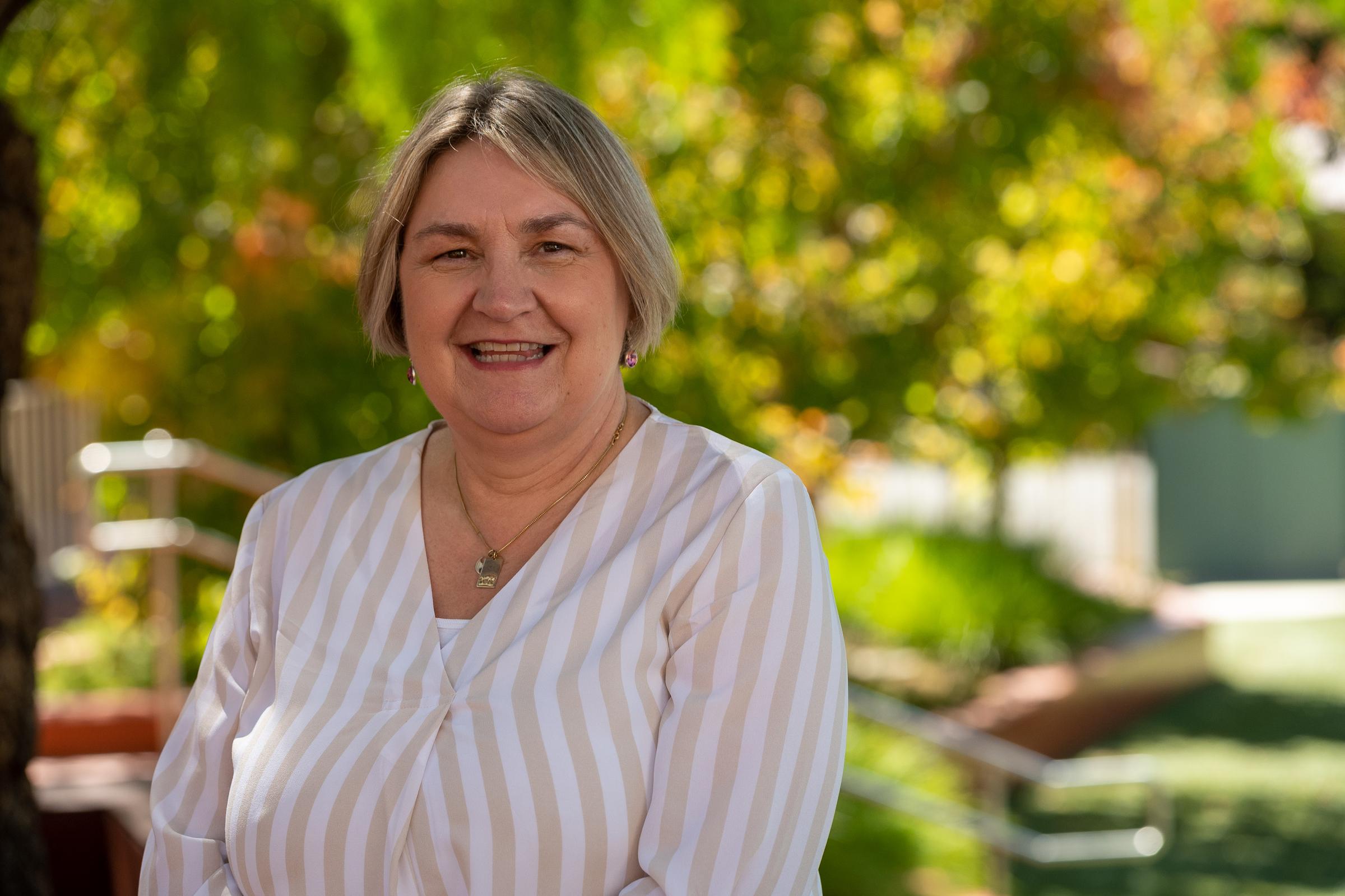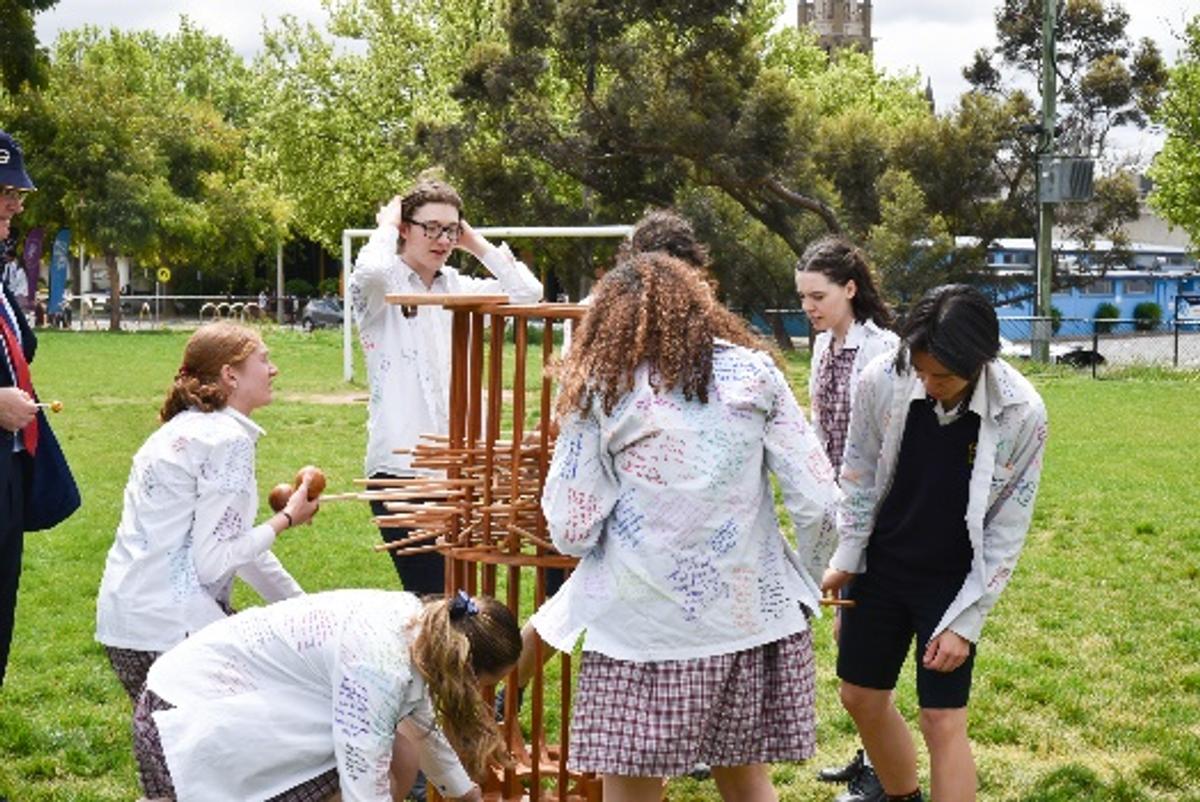From the Head of Senior School

Last week, we saw a bittersweet series of events leading up to the last day for our Year 12 cohort. The day began with a valedictory thanksgiving church service for the Year 12s and their parents, which was held at Forest Street Uniting Church. Upon returning to School, the Year 12s took part in the traditional shirt signing and special final House farewell assemblies. Lunchtime saw the students enjoy an array of giant outdoor games and a delicious food truck lunch of paella and churros.
The Final Assembly for Year 12 culminated in many emotions for the students and their parents and carers. We were entertained by their dancing, musical talents and reflections of their journey at Girton, which inspired our upcoming students considerably. I wish all our Year 12 students good luck in their exams and encourage them to continue to use the opportunities provided by the School and their teachers to maximise their success. As a reminder, Year 12s must continue to wear their formal uniform and sign in at Reception when attending School and using the study rooms.
The first written VCE examinations began this week, with some Year 11s and our Year 12s preparing for the following examinations:
- Tuesday 24 October: English
- Wednesday 25 October: English Language, Japanese First Language
- Thursday 26 October: VET Business, Physical Education, Literature
- Friday 27 October: Biology, General Mathematics Examination 1
The full 2023 VCE exam timetable can be obtained from the VCAA website.
Transition to Senior School – Helping your child with their learning
Continuing from my previous eLink article, below are some strategies you can use to help create the best possible environment to support your child’s study and learning.
- Subjects: A great way to assist your child is by being aware of the subjects they are completing and the topics they are covering in those subjects each year. According to the OECD, 'Improved educational outcomes result from a genuine interest and active engagement from parents' (OECD 2011). Knowing the topics your child is studying can enable you to expose them to different subject dimensions through films, books, contemporary issues, the internet, exhibitions and travel. Students (perhaps subconsciously) also appreciate when their parent shows a genuine interest in what they are learning.
- Assignments or home learning tasks: Staying up to date on the assignments your child is completing gives you an opportunity to talk to them about the topic and task expectations. Drawing out their understanding of the topic and marking criteria can help instil a deeper appreciation of the subject content for your child. Parents and carers can also play a role in helping their child break their work for an assignment into manageable chunks that are scheduled in their calendar or diary. Planning their workload in this way can reduce the sense of enormity of the task.
- Tests: Similarly, you can help your child revise for tests by encouraging them to explain concepts or write them on a mini whiteboard or palm cards. Memory and understanding can increase if the brain uses multiple processes to learn information, such as writing, reading, speaking, drawing or even singing! When tests are returned, encourage your child to focus on what was achieved and note concepts they may need to revise again before the end-of-semester examinations. It is important your child knows that, as a parent, you are not solely focused on their grade but also on how the test (or assignment) is helping them learn.
- Technology: According to Raising Children Network, screen time before bed can affect when teenagers fall asleep and their overall quality of sleep. Parents can reduce these risks by encouraging children to avoid gaming and device use prior to bed and keeping devices out of their bedrooms. However, rather than dictating the rule, it can be helpful for parents to talk to their children about the importance of sleep in helping the brain to re-wire neural pathways and consolidate the day's learning. A lack of sleep can lead to reduced concentration and attention span, delayed response time, and decreased short-term memory. Developing rules for technology use (including TV viewing) with your child will ensure there is agreement about the approach.
- Communication with the School: It is now fully acknowledged that parents and teachers play a dual role in educating students, so it is vital for parents and carers to maintain open communication with the School. It’s beneficial for parents to stay up to date with the information conveyed through eLink, Astra and emails, as it is not uncommon for students to miss this information. You can then discuss with your child what the School is offering, advising or sharing.
It is equally important for parents to advise the School of any changes or issues occurring at home, to give teachers an understanding of any changes in a student’s behaviour, work ethic or concentration. We encourage parents to advise the School of illnesses or deaths in the family (including a family pet), extended parent absences, or any other challenges at home. Depending on the circumstances, teachers may be able to provide moderated tasks or extensions on homework or assessments to allow your child to resume their learning journey without additional stress. With this in mind, it is also beneficial for parents to give students opportunities to approach teachers for assistance and manage issues at School themselves. This will allow them to gain skills and strategies to deal with life's variables and become independent, confident problem-solvers.
I hope these strategies will be of assistance throughout your child’s Senior School journey.
Ms Dawn Davis
Head of Senior School
[OECD 2011] PISA in Focus, (2011). What can parents do to help their children succeed in school? Available at: http://www.oecd.org/pisa/49012097.pdf
[Raising Children Network 2022] Screen time and digital technology use: how it affects child and teenage sleep. Available at: https://raisingchildren.net.au/preschoolers/media-technology/screen-time-healthy-screen-use/screen-time-sleep
[Henderson and Mapp 2002] Henderson, A. & Mapp, K. (2002). A new wave of evidence. The impact of school, family, and community connections on student achievement. Southwest Educational Development Laboratory (SEDL). Available at: http://www.sedl.org/connections/resources/evidence.pdf




